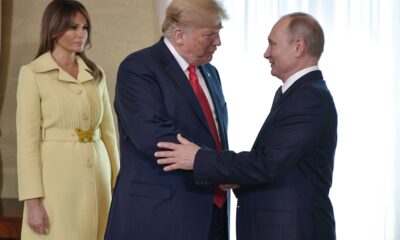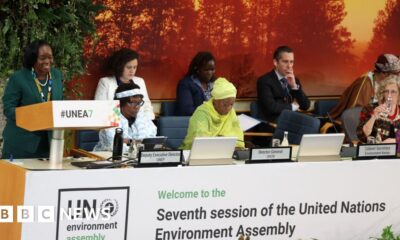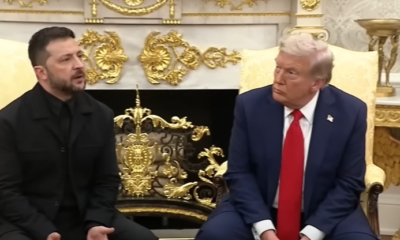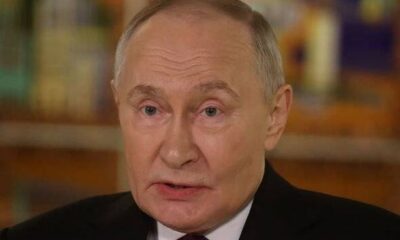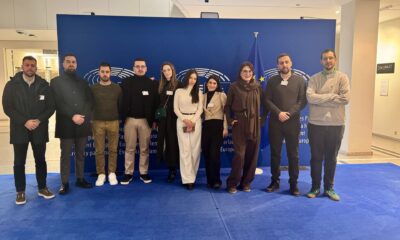Business
German Firms Contribute €1.72 Billion in Taxes to Russia
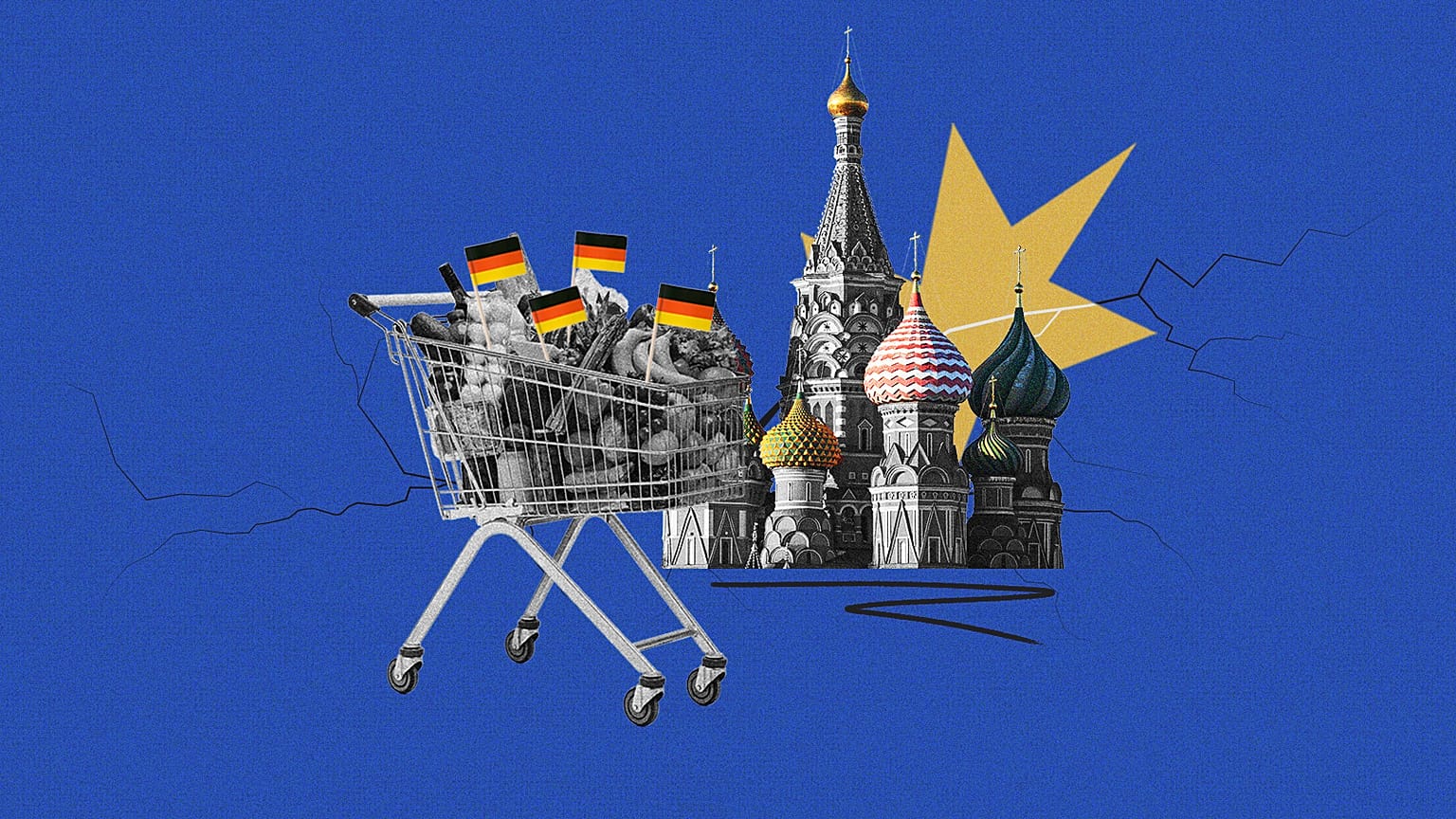
German companies have remitted nearly €1.72 billion in taxes to Russia since the onset of the Ukraine invasion, raising significant concerns regarding their financial support of the Russian war effort. Despite this substantial contribution, over half of the German firms that operated in Russia prior to the war remain in the country, according to a recent report.
The report highlights that approximately 250 German companies currently active in Russia are legally compliant with existing regulations. Notable examples include the cheese manufacturer Hochland and gypsum producer Knauf, both of which produce consumer goods that do not violate European Union sanctions. However, critics argue that these contributions to the Russian economy, through tax payments, directly support the Kremlin’s military operations in Ukraine.
“Companies support Russia’s war economy through the taxes they pay,” stated Nezir Sinani, director of B4Ukraine, a coalition of civil organizations aimed at disrupting the financial resources fueling Russia’s aggression. Sinani emphasized that by remaining operational in Russia, these businesses are inadvertently endorsing the war. He described the situation as a “loophole that must be closed.”
According to the Kyiv School of Economics (KSE), along with B4Ukraine and the Squeezing Putin Initiative, international companies still functioning in Russia paid a staggering total of at least €17.2 billion in taxes to the Russian government in 2024 alone. Since the escalation of hostilities in early 2022, this figure has surpassed €51.8 billion.
The financial implications are stark: the amount paid by these companies could purchase approximately 10,000 attack drones, a significant tool used against Ukrainian cities. The KSE report reveals that German firms rank as the second-largest taxpayers to the Russian state after their American counterparts. In 2024, businesses based in the U.S. contributed €1 billion, while German firms accounted for €513.5 million in profit taxes.
For the years 2022 through 2024, KSE estimates indicate German companies have paid nearly €1.72 billion annually in various taxes to Russia. Sinani asserts that this funding is facilitating the missiles and bombs devastating Ukrainian urban centers.
In response to inquiries about their decision to remain in Russia, Hochland emphasized their responsibility to approximately 1,800 employees and their families, alongside longstanding partnerships within the country. The company operates three plants in Russia, including locations in the Moscow region and near the Ukrainian border. Despite acknowledging a “significant drop in profitability” in 2024, Hochland has no intention of selling its Russian operations. They stated that exiting would only further benefit the Russian state and expressed hope for a future return to a shared set of values with the West.
Exiting the Russian market is becoming an increasingly expensive endeavor. In 2024, Anton Siluanov, Russia’s Finance Minister, announced heightened costs associated with foreign company exits. The tax on business sales rose from 15% to 35%, with required discounts on asset sales increasing from 50% to 60%. Companies selling assets valued over 50 billion rubles (approximately €526 million) must now seek approval from President Vladimir Putin.
While Hochland has operations across Europe, including Germany, Poland, and Romania, they have not disclosed specific financial details concerning their Russian activities. According to Russia’s Federal Tax Service, foreign companies face a corporate income tax rate of 25%, identical to that of domestic enterprises. However, businesses also generate profits, with KSE estimating the total revenue of German firms in Russia at around €21.7 billion in 2024.
As of early July, KSE reported that only 503 international companies, or 12%, had fully exited Russia through sales or liquidation. Approximately 33.2% suspended operations or announced plans to withdraw, while 54.8% continued to operate. For German companies specifically, 55% of those present before the invasion are still active in the Russian market.
Sinani warns that the involvement of German companies extends beyond tax payments. “By staying in Russia, these companies risk becoming entangled in the country’s war machine,” he cautioned.
Knauf, in particular, has faced scrutiny for its perceived role in supporting the Russian military. Research from German public broadcaster ARD’s political magazine Monitor has indicated that Knauf’s materials were used in reconstruction efforts in Mariupol, a city devastated by the war. While the company has denied any collaboration with the Russian Ministry of Defense, it acknowledges ongoing operations in Russia and is currently exploring options to withdraw.
Despite announcing their intention to exit the Russian market, Knauf revealed that negotiations with a potential buyer failed. The company asserts it has not profited from Russian operations since making this announcement and is actively involved in rebuilding efforts in Ukraine.
The German government, alongside its citizens, has provided Ukraine with €44 billion in military, humanitarian, and financial assistance. Yet, the ongoing presence of German companies in Russia undermines this support, according to Sinani. He contends that economic sanctions against Russia are rendered less effective as international firms continue to contribute to the Russian economy.
With sanctions imposed since the start of the conflict in February 2022, many are questioning their effectiveness. Sinani argues that the lack of enforcement and the continued activity of companies not included on sanctions lists contribute to the ongoing conflict. He calls for immediate action: “Drop the keys and leave immediately,” urging businesses to follow the lead of those who have successfully exited.
In summary, the continued operations of German firms in Russia not only raise ethical concerns but also highlight the complexities of navigating international business amid geopolitical tensions. The implications of these financial ties are profound, affecting both the war in Ukraine and the future of international corporate responsibility.
-

 World4 days ago
World4 days agoCoronation Street’s Shocking Murder Twist Reveals Family Secrets
-

 Entertainment4 months ago
Entertainment4 months agoKate Garraway Sells £2 Million Home Amid Financial Struggles
-

 Entertainment3 months ago
Entertainment3 months agoAnn Ming Reflects on ITV’s ‘I Fought the Law’ Drama
-

 Health3 months ago
Health3 months agoKatie Price Faces New Health Concerns After Cancer Symptoms Resurface
-

 Entertainment3 weeks ago
Entertainment3 weeks agoCoronation Street Fans React as Todd Faces Heartbreaking Choice
-

 World4 weeks ago
World4 weeks agoBailey Announces Heartbreaking Split from Rebecca After Reunion
-

 Entertainment6 days ago
Entertainment6 days agoTwo Stars Evicted from I’m A Celebrity Just Days Before Finale
-

 World7 days ago
World7 days agoKevin Sinfield Exceeds Fundraising Goal Ahead of Final Marathons
-

 Entertainment3 months ago
Entertainment3 months agoCoronation Street’s Carl Webster Faces Trouble with New Affairs
-

 Entertainment3 months ago
Entertainment3 months agoWhere is Tinder Swindler Simon Leviev? Latest Updates Revealed
-

 Entertainment4 months ago
Entertainment4 months agoMarkiplier Addresses AI Controversy During Livestream Response
-

 Science2 months ago
Science2 months agoBrian Cox Addresses Claims of Alien Probe in 3I/ATLAS Discovery



